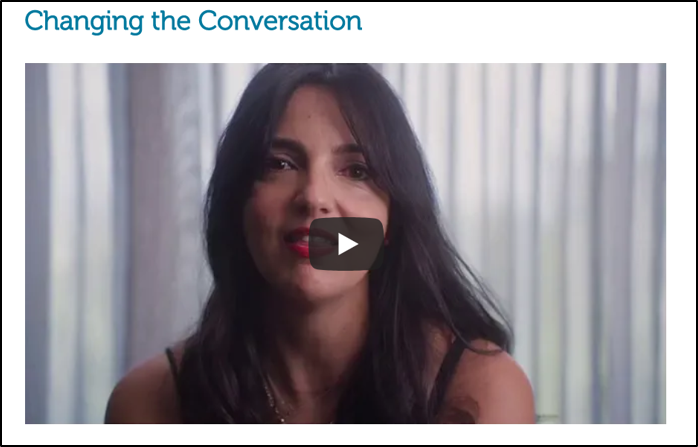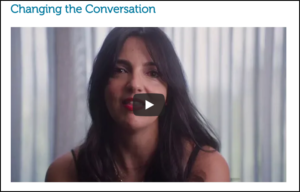
A new day dawning
Please, let patients help improve healthcare. Let patients help steer our decisions, strategic and practical. Let patients help define what value in medicine is. –Dave deBronkart, Let Patients Help
Imagine with us…… a square table. On one side sits the healthcare team. On the other sits their patient living with diabetes. The healthcare team has created a plan and program of great things for their patient that they think their patient needs…without once asking for any input or perspective of that patient – the one who actually lives with diabetes 24/7/365. What if instead, at that same table, everyone is sitting on the same side. The individual living with diabetes was included in the discussion and decision making from the very beginning. The plan and program was crafted around their input. That’s an illustration of co-design. And that is something we strongly believe in. What if relatable individualized solution-focused education services for people with diabetes were co-designed with people living with diabetes?
What exactly is co-design?
The Institute for Healthcare Improvement defines co-design in the following way: “Co-design involves the patients in the design process and works with them to understand their met and unmet needs…..This enables us to incorporate the patient perspective directly and immediately.” In theory it doesn’t sound complicated, but it doesn’t seem to happen very often. The healthcare profession has a long history of the clinician being the “expert” and the patient being the one to “follow orders”. Often, programs and services are designed by the medical staff, independent of patient input. Some more evolved health systems are adding patient and family advisory councils to get feedback and input. However well meaning, they’re often not facilitated to the full potential.With co-design, everyone has an equal say in creating the solution. It is not spending time just getting feedback about programs you’ve already designed….it’s about including people in the decisions from the very beginning.
So instead of the healthcare team solving problems they think exist, co-design allows a multi-stakeholder team to first identify the problem that really exists and then develop solutions together. People living with diabetes know what’s worked for them and what hasn’t, and how they would create a program if they had the chance. This is truly a person centered approach to care.
How has @AFreshPOVforYou been engaged in co-design?
Supported by a three-year PCORI award, the Intercultural Diabetes Online Community Research Council, affectionately known as, iDOCr, was born (which Deb is a part of). The goal of PCORI is to help patients make more informed healthcare decisions by supporting research that compares the effectiveness of existing, known and proven treatments. All PCORI projects involve patients from the very beginning of every research study or community engagement project. With the iDOCr funding, a stakeholder group was created that represented researchers, clinicians, people working in industry, non-profit organizations and people affected by diabetes (people living with type 1 and type 2 diabetes and caregivers). Both English and Spanish-speaking individuals were included.Together, over the three-year award, this team developed a research question that was important to the group with the goal of eventually receiving funding to conduct the study. One of the main outcomes of this award was very interesting to us….although the majority of the iDOCr patient representatives lived with type 1 diabetes, the team decided to develop a research study focused on type 2 diabetes in the Hispanic community, because that is where they saw the need. This is the essence of co-design; preconceived ideas might have encouraged a completely different research question. The team is about to embark on the research study very soon, so stay tuned for more information. You can learn more about iDOCr via Facebook, Twitter and read the Blogs here.
We also led the development of two videos to educate about the use of person first language in diabetes. These 2 videos “Why Language Matters” and “Changing the Conversation” were written and produced using co-design principles. The background and supporting information was first taken from the 2017 paper, The Use of Language in Diabetes Care and Education jointly published by AADE and the ADA. We wanted to understand how language has directly impacted people living with diabetes by learning about real world experiences. We also wanted to learn from healthcare providers how they used empowering, person first language in their practices. So, we developed questions and asked the diabetes community to answer them. We were so overwhelmed with responses that we knew people really wanted to share their stories about why #LanguageMatters to them. From these stories we crafted the scripts for the two films and then we sent the scripts back out to the diabetes community to make sure we got it right. Finally, the videos were filmed with those same individuals, not actors, but people living in the diabetes community. The amazing, talented and Telly award winning creative director from Mytonomy, Mr. Kevin Kuchar created videos that we are so proud of and really reflect the true emotion that language can create and why the language we use in healthcare has a direct impact on outcomes and well being. Read our November, 2018 blog Language can change your POV!

How are we using co-design now?
Currently, we are using co-design to help us create diabetes services that resonate with people living with diabetes. Our efforts began with a #DSMA Twitter Chat with the diabetes online community. Questions for the group focused around how diabetes education could bring them joy (read our blog to learn about this discussion). From this information we developed a survey to dive deeper and learn more. One finding from the survey was that most people with diabetes are not familiar with the concept of co-design, which told us that it’s not happening much in the healthcare space where diabetes is being managed. We’d like to change this practice and share with others how its done! Our next step is to hold a focus group. Each step along the way, we are learning new things.
We’ll be excited to share out focus group outcomes and learnings later this year. Stay tuned!
As e-patient Dave said, we want to “let patients help” us move diabetes education services forward in partnership with the real experts, those living with diabetes 24/7/365.
Subscribe to our blog and we’ll email you when a new post is published!
Follow us on Twitter and Instagram @AFreshPOVforYou.

